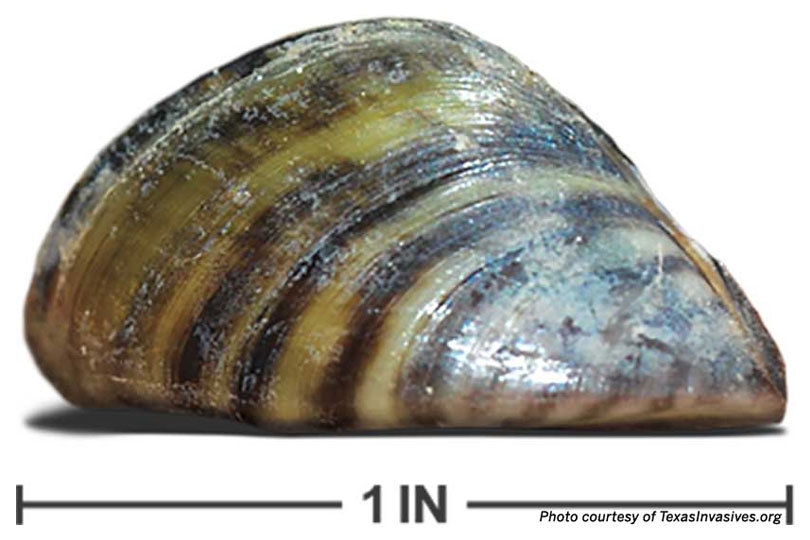By Justin Walker
Communications Specialist
The Texas Parks and Wildlife Department (TPWD) upgraded the classifications of two Central Texas lakes after statewide sampling for zebra mussels.
Lake Austin has been upgraded to infested, meaning the body of water has an established, reproducing population. TPWD and the Lower Colorado River Authority (LCRA) staff identified multiple size classes of adult and larvae zebra mussels throughout the lake.
Lady Bird Lake is now labeled as suspect, which means zebra mussels or larvae have been spotted at least once. LCRA staff found larvae in a plankton sample.
The two upgrades come less than a year after zebra mussels were discovered upstream in Lake Travis last June.
“When zebra mussels were found in the Colorado River Basin, we knew it was likely that larvae would disperse and invade downstream water bodies,” Monica McGarrity, TPWD Aquatic Invasive Species team lead, said. “But downstream dispersal doesn’t spread zebra mussels to new river basins—boats do—and boats can spread them downstream more quickly.”
After the conclusion of the statewide sampling, 14 lakes in five river basins are listed as infested.
Lake Austin and Lake Travis are joined by Belton, Bridgeport, Canyon, Dean Gilbert, Eagle Mountain, Georgetown, Lewisville, Livingston, Randell, Ray Roberts, Stillhouse Hollow and Texoma.
Five lakes have tested as positive, or having zebra mussels or larvae been detected more than once, including Lavon, Richland Chambers, Waco, Worth and Fishing Hole.
Lady Bird Lake is joined by two other lakes, Lake Fork and Lake Ray Hubbard, classified as suspect.
A high risk of zebra mussel invasion exists for most Texas bodies of water. Zebra mussel DNA was discovered in at least 10 other water bodies in the Lone Star State during 2017, and while the existence of DNA does not confirm zebra mussel presence, it does alert biologists to continue monitoring those areas.
“The DNA hits also underscore the importance for boaters to thoroughly clean, drain and dry their boats and gear when leaving any lake in Texas—not just at the 22 we have classified as infested, positive or suspect,” Brian Van Zee, Inland Fisheries regional director, said. “Even though you may not see them, microscopic hitchhikers could still be hiding in your equipment.”
Click here to learn more about zebra mussels.

